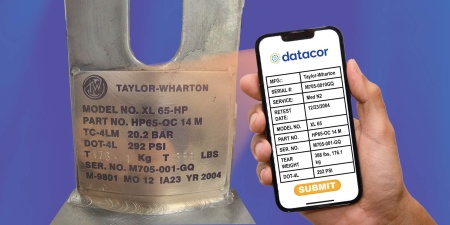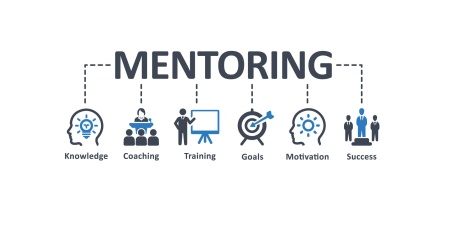There is good news on the horizon and companies find themselves gearing up to bring back employees and hire additional staff. As the vaccines for COVID-19 are approved and people are immunized, we look forward to getting back to work on a broader scale.
The pandemic, however, has left a lot of upheaval in its wake. I recently spoke to a newly appointed VP of Sales who said his first challenge was to replace 4 of the 6 regional sales managers at his company. Imagine the cost and emotional impact of such a dramatic transition. It is expensive to find and train new managers, and painful and disorienting for the existing staff to see their former colleagues sent adrift.
Key Characteristics
Employee transitions are never easy but there are ways to make the process less painful and more effective. Start with a prioritized list of the key characteristics you look for in an employee and give them precedence in your reorganization or hiring plan.
Cultural fit – It is vitally important that any new recruit fits into your company’s culture. Be sure he or she shares your values. The right person is someone who can build trust with clients, engage in healthy conflict, make real commitment, hold people accountable, and focus on the team’s results.
In his 2016 book, The Ideal Team Player, Patrick Lencioni illustrates this point with the story of a company looking to add to its executive team. During interviews with a well-qualified candidate, it was brought to light that he lacked humility, possessed an underlying indifference to people and felt staff were there to serve him, not the company. These characteristics were anathema to the company’s culture. In Lencioni’s example, the right person had to be someone who could easily build trust, not a self-centered egotist. Uncovering this lack of cultural fit saved the company from bringing on a well-qualified but ill-suited executive.
Jim Collins, in his epic work, Good to Great, referred to the practice of finding a cultural fit as, “Getting the right people on the bus, and in the right seats.” What are the specific virtues and kinds of behavior and moral standards your company values? Make sure your next hire shares those.
Humility – The best team members are humble and keep their egos in check. They share credit, emphasize team over self, and operate collectively rather than as individuals. These leaders will ask good questions, listen to others, and stay engaged in conversations. When someone comes to them with a personal problem, they listen, offer help, or recommend others that can be of assistance.
As an aggressive personality type, remaining humble has been one of my greatest challenges. Fortunately, I received some painful but sage advice early in my career. A dear friend with whom I had worked pulled me aside and said, “Art, you are so focused on working hard and succeeding that you walk all over people.” He told me that he knew my heart was in the right place but that I needed to start putting my team members first. Throughout a 5-decade long career, I have had to constantly remind myself of his advice.
Openness – In his book, The Advantage, Patrick Lencioni talks about the need to be open with your colleagues and describes a principle called Vulnerability-Based Trust. Lencioni believes, “A leadership team must be willing to be completely transparent, honest, and naked with one another, if they are to build trust.”
As a consultant to a Fortune 500 Company, he was asked by its new CEO how best to get to know and establish trust with the existing team. Lencioni recommended an off campus summit where team members would be asked to share their background information, starting with their primary school days. One VP refused to participate and quit. That individual was probably part of the downfall of the previous CEO, Lencioni surmised, as he was unable to build trust.
Lencioni advises, “It is amazing to witness how quickly the dynamics of a team can change after a simple twenty-minute exercise as people who thought they knew one another develop a whole new level of respect, admiration, and understanding, regardless of their job title, age, or experience.”
He continues, “Willingness to share ones past personal and professional successes and failures helps each person identify their own weaknesses and opens the door to transparency.” Sharing profiles provides the background that can help explain the root cause of a colleague’s negative or frustrating behaviors, instead of just attributing them to general environmental factors. Lencioni says, “If the leader is reluctant to acknowledge his or her mistakes or fails to admit to a weakness that is evident to everyone, there is little hope that other members are going to take that step themselves.”
Work ethic – You want people with a good work ethic, the types who are always asking for more to do and show interest in learning new things. Self-motivation, diligence, and the ability to take responsibility are important traits to look for in an individual.
A valued employee is able to articulate next-step actions for projects and develop ideas for new opportunities. They always work until the job is done. They do what they say they will do, in a timely manner, no matter the circumstances. Successful people are continually “sharpening their saws” and believe the harder they work, the smarter and more successful they become.
Avoid those who demonstrate self-interest, individualistic, and self-important tendencies. They will not play well with their peers.
Talent not aptitude – While intellectual capacity is important, common sense is a talent even more critical to success. I once worked with an executive who was excited to add a Harvard MBA in Finance to his team. The new hire was indeed intelligent, but was unable to translate his academic pedigree into practical ways of getting the job done.
You want to hire intelligent people with an ability to ask good questions, listen to what others are saying, and engage in meaningful conversations. Persons with these skills recognize the subtleties of group dynamics and recognize the impact of their words and actions. Put these attributes together with the right work ethic and you have a team builder. Caution — some of the most dangerous people in history have been interpersonally smart, so be sure the moral compass of your candidate is pointed in the right direction.
A lack of aptitude can also trigger latent talents. Employees who have had to overcome challenges can be strong contributors to a company. I was born with a reading disability and struggled in school. That changed in college when I was able to channel my strengths in the right direction. In his book, The Talent Code, Daniel Coyle talks about a “surge of energy” that occurs when a person reaches deep from within and affirms their struggle. For me, this happened my freshman year when I discovered that, by pacing myself through the semester, I could finish my work and receive an “A” on a project. This success set off a trigger that spoke to the core of my learning experience, and when it comes to that type of ignition, there’s nothing more powerful.
Look for people who can demonstrate a struggle that resulted in talent formation. That kind of savvy will often outperform high aptitude.
Attention to detail – Attention to detail is a big part of what makes someone successful. It is difficult to delight your customers if you are disorganized. Be sure your candidate illustrates good organizational behaviors as these are some of the most important and transferable skills an employee can have. You want your new employee to be a person who can plan, prioritize, and achieve his or her goals. This saves time and the company money.
Organizational skills are essential for multitasking and keeping a business running smoothly and successfully. Employers should aim to recruit applicants who can work to achieve results consistently, even when unforeseen delays or problems arise.
Building a Strong Team
The pandemic has struck certain sectors of the economy hard and eliminated many jobs in which the people who have lost them are entirely without fault. For companies that have been able to remain up and running, the pandemic has presented an opportunity to identify weak spots. In times of crisis, the fracture lines become crystal clear. Employees who may have been underperforming become dead weight. Others demonstrate strengths hitherto unrecognized and perhaps deserve a promotion. For company executives, there is a lot to consider as you reorganize and adjust to a new world order. Whether dealing with reorganizing existing staff, bringing on new hires, or both, focusing on the key characteristics described above will ensure you continue to develop a strong team.









